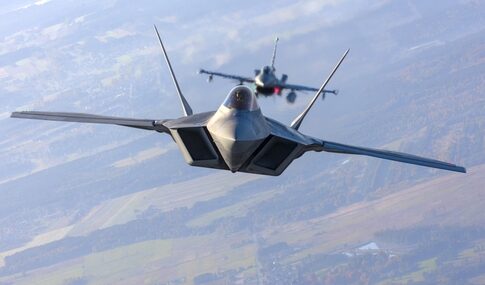In a dramatic act of sabotage, far-left activists from the group Palestine Action targeted the Teledyne CML Composites factory in Bromborough, UK, a facility known for producing parts for the F-35 fighter jet. This aircraft, widely used by Israel in its military operations, has become a focal point for protests by the radical group, which opposes the use of British-made components in Israel’s airstrikes on Gaza.
On October 2, 2024, a group of activists infiltrated the factory’s roof, gaining access to highly sensitive production areas. According to Palestine Action’s social media, the saboteurs broke into a clean room used for the production of key F-35 parts, a move that could reportedly halt operations for up to 12 months. Teledyne's management confirmed that contamination in this area would severely disrupt the manufacturing process. This bold attack follows a series of earlier actions by the group, which has increasingly targeted UK-based defense contractors involved in supplying arms to Israel.
Palestine activist brags after breaking into an F-35 manufacturing factory in the UK and spraying red paint inside to disrupt production.
“See their F-35 clean room. We’ve got it boys. There are our comrades…we’re here for Palestine and Lebanon.” pic.twitter.com/dg4Hj71Et7
— Oli London (@OliLondonTV) October 2, 2024
Merseyside Police arrested three individuals involved in the break-in, which occurred at dawn. The activists reportedly scaled the building and cut holes in the roof, then proceeded to spray red paint inside the facility to symbolize the bloodshed in Gaza. This attack is not the first of its kind; Palestine Action had previously targeted the same site in July, driving a van through the factory gates and dousing it in red paint.
The factory in question is part of the Teledyne Technologies network, a major player in the defense industry. Teledyne CML Composites specializes in high-tech components for military aircraft, including the F-35, which has been a critical asset for Israel’s air force. These protests are part of a broader movement to disrupt the UK’s arms trade with Israel, with activists accusing the British government and defense contractors of facilitating war crimes.
🚨BREAKING NEWS
In UK, Palestine activists climbed onto the roof of a Teledyne factory that produces parts for Israeli F-35 jets and poured red paint inside.
— Europe Invasion (@EuropeInvasionn) October 2, 2024
Palestine Action, a far-left activist group with ties to other radical organizations, has made a name for itself through a series of high-profile protests targeting defense contractors. The group is known for its direct action tactics, often involving property damage and public demonstrations. The Bromborough incident is the latest in their ongoing campaign to sever the supply chains that arm Israel’s military.
Teledyne's operations at the Bromborough site are now in jeopardy as the factory assesses the extent of the damage. The contamination of clean rooms could cripple production for months, potentially affecting the global supply chain for the F-35, which relies on British-made components. A similar protest earlier in the year at Teledyne’s sister site in Shipley disrupted the manufacture of military electronics bound for Israel, though activists were acquitted of criminal damage.
The UK government has faced increasing pressure from left-wing groups to halt arms exports to Israel, but it has largely resisted these calls, citing strategic and economic interests. The F-35 program, in particular, involves numerous British firms, contributing significantly to the UK’s defense industry. However, critics argue that these exports fuel the ongoing conflict in Gaza, where F-35 jets have been used to carry out devastating airstrikes.
The recent attacks by Palestine Action raise concerns about the security of vital defense infrastructure in the UK. While the activists claim their actions are in defense of human rights, others see them as a direct threat to national security. Conservative voices in Britain have condemned the group’s tactics, calling for harsher penalties and better protection of defense facilities. As the protests continue, the government will need to balance its defense partnerships with increasing domestic opposition to arms exports.


